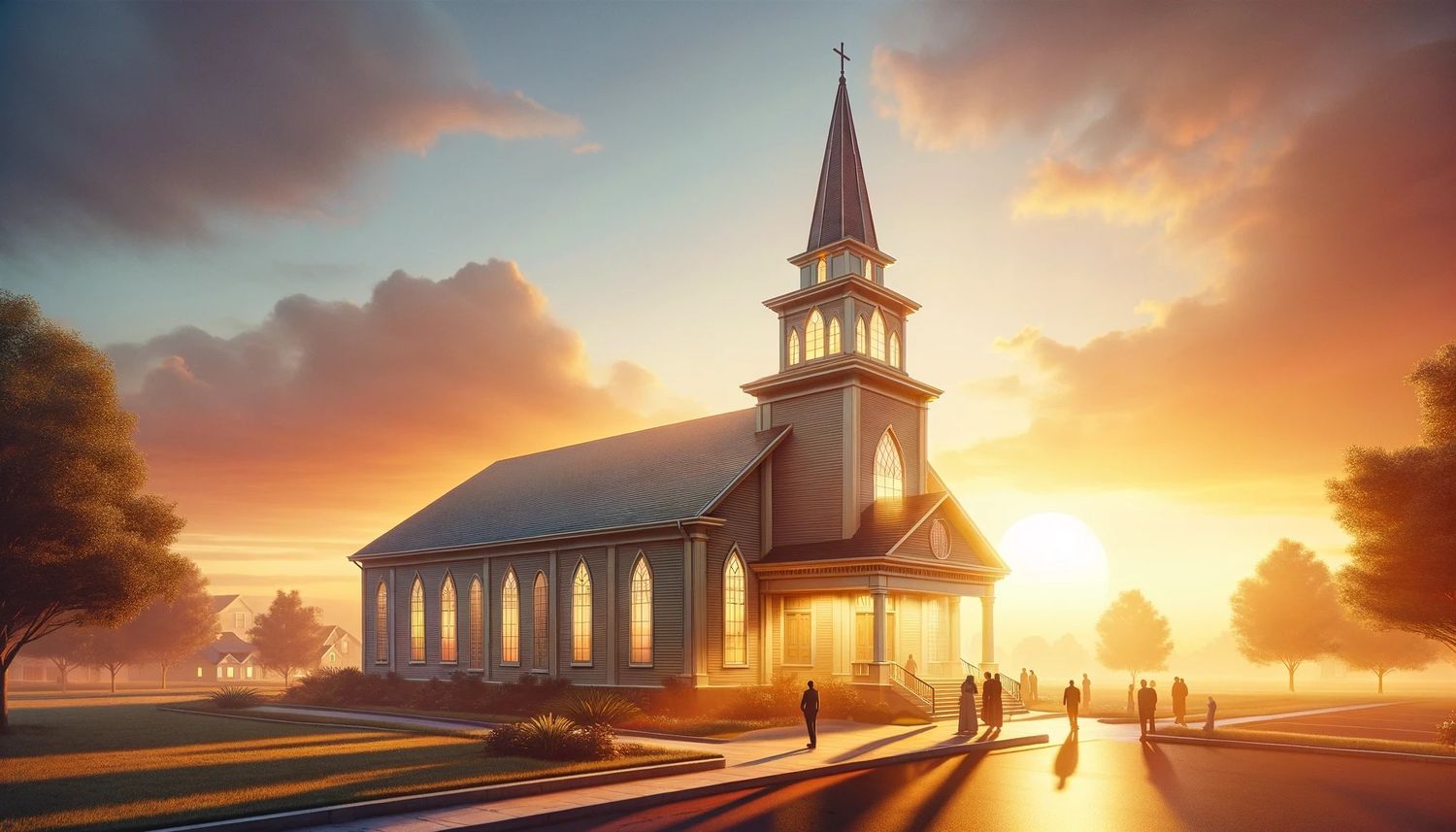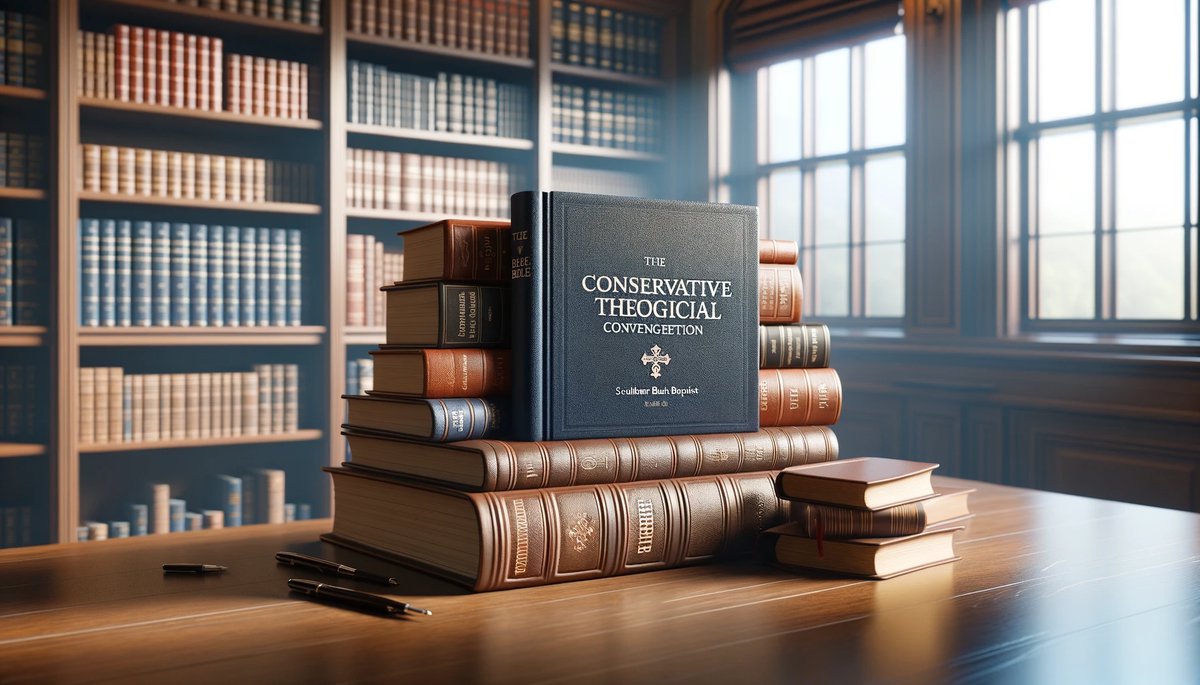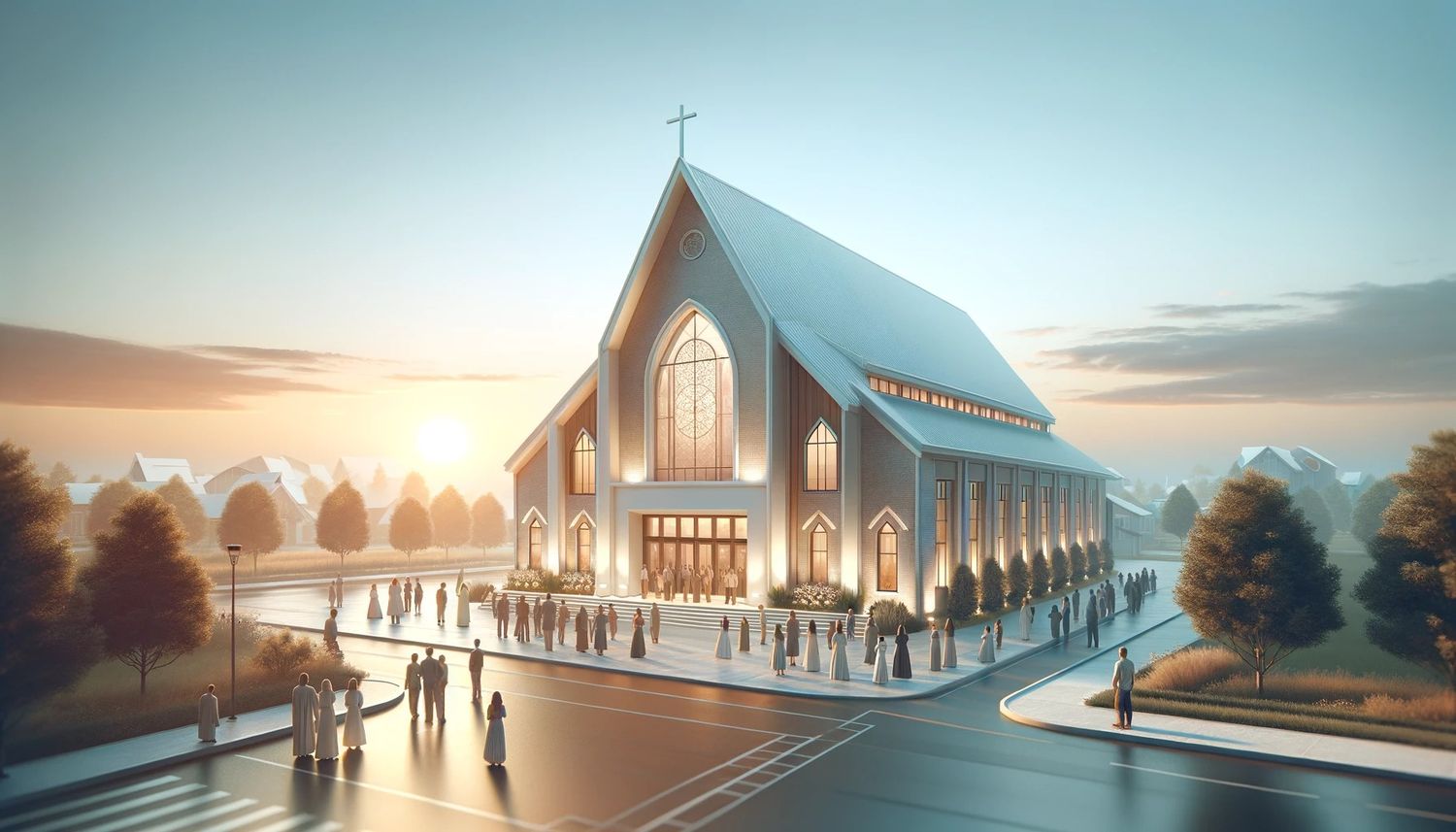Home>Theology and Spirituality>What Is Going On With The Southern Baptist Convention


Theology and Spirituality
What Is Going On With The Southern Baptist Convention
Published: February 20, 2024
Peter Smith, Editorial Director at Christian.net, combines deep insights into faith, politics, and culture to lead content creation that resonates widely. Awarded for his contributions to religious discourse, he previously headed a major organization for religious communicators, enhancing dialogue on faith's societal impacts.
Discover the latest developments and controversies within the Southern Baptist Convention. Stay informed about theology and spirituality issues impacting the denomination. Explore the ongoing discussions and debates.
(Many of the links in this article redirect to a specific reviewed product. Your purchase of these products through affiliate links helps to generate commission for Christian.net, at no extra cost. Learn more)
Table of Contents
Introduction
The Southern Baptist Convention (SBC) has long been a significant and influential force within the landscape of American Christianity. With a rich history dating back to the early 19th century, the SBC has played a pivotal role in shaping the beliefs, practices, and cultural impact of evangelical Christianity in the United States. However, in recent years, the SBC has been embroiled in a series of controversies and internal struggles that have captured the attention of both its members and the broader public.
As the largest Protestant denomination in the United States, the SBC has historically been known for its conservative theological stance, unwavering commitment to evangelism, and strong emphasis on missions and social engagement. Its membership has encompassed a diverse array of individuals, representing a wide spectrum of theological and political viewpoints. The SBC has been a unifying force for many, providing a sense of community and shared purpose among its congregants.
Despite its longstanding influence and positive impact, the SBC has faced a series of challenges in recent years. These challenges have sparked intense debate and soul-searching within the denomination, leading to significant shifts in leadership, doctrinal discussions, and public perception. The controversies and issues that have arisen within the SBC have not only tested the resilience of the denomination but have also prompted profound reflection on its identity and future trajectory.
In light of these developments, it is essential to delve into the history, recent controversies, leadership changes, and the responses and reactions from members within the SBC. By examining these aspects, we can gain a comprehensive understanding of the current state of the Southern Baptist Convention and explore the potential implications for its future.
Read more: Where Is The Southern Baptist Convention
History of the Southern Baptist Convention
The roots of the Southern Baptist Convention (SBC) can be traced back to the early 19th century when Baptists in the southern United States began to organize and collaborate on matters of faith and mission. The SBC officially formed in 1845 in Augusta, Georgia, as a result of theological and regional differences that led to a split from the Triennial Convention, a nationwide Baptist organization. The primary point of contention was the issue of slavery, with Southern Baptists advocating for the rights of slaveholders to serve as missionaries, a stance that diverged from the anti-slavery position of their northern counterparts.
Throughout the 19th and 20th centuries, the SBC experienced significant growth and expansion, establishing itself as a prominent force within American evangelicalism. The denomination's commitment to conservative theological principles, including the authority of Scripture and the primacy of evangelism, resonated with many believers, leading to a steady increase in membership and influence. The SBC's unwavering dedication to missions and evangelism also propelled its global outreach efforts, resulting in the establishment of numerous churches and mission initiatives around the world.
The SBC's historical trajectory has been marked by periods of both unity and division, reflecting the diverse theological and cultural landscape of the American South. Over time, the denomination has navigated through various social and political challenges, including the Civil Rights Movement and debates over gender roles and leadership within the church. Despite these challenges, the SBC has remained steadfast in its commitment to conservative values and evangelistic fervor, shaping the religious and cultural fabric of the southern United States and beyond.
Today, the Southern Baptist Convention stands as the largest Protestant denomination in the United States, comprising thousands of churches and millions of members. Its historical legacy, theological distinctives, and enduring impact on American Christianity position the SBC as a significant and influential entity within the broader evangelical landscape. The rich history of the SBC serves as a testament to its resilience, adaptability, and enduring commitment to the proclamation of the gospel and the advancement of the Kingdom of God.
Recent Controversies and Issues
In recent years, the Southern Baptist Convention (SBC) has been embroiled in a series of controversies and internal struggles that have garnered widespread attention and sparked intense debate within the denomination. One of the most significant issues that has surfaced is the handling of cases related to sexual abuse and misconduct within SBC churches and entities. Revelations of instances where church leaders and volunteers were accused of perpetrating or covering up such misconduct have prompted soul-searching and calls for greater accountability and transparency within the SBC.
Furthermore, debates over theological and doctrinal matters have emerged as points of contention within the denomination. These discussions have centered on topics such as complementarianism, the belief in the distinct roles of men and women, and the application of this doctrine within the church and broader society. The tension surrounding these issues has underscored the diverse theological perspectives within the SBC and has led to impassioned dialogue and discernment.
Additionally, the SBC has grappled with questions related to racial reconciliation and diversity, particularly in the wake of heightened awareness of racial injustice and inequality. Efforts to address historical and present-day racial tensions within the denomination have prompted introspection and a renewed commitment to pursuing unity and understanding across racial and cultural lines.
Amid these challenges, the SBC has also faced internal divisions and leadership controversies, with differing viewpoints on how best to navigate the complex issues confronting the denomination. These divisions have given rise to impassioned debates over the future direction and identity of the SBC, reflecting the diverse perspectives and convictions held by its members.
The convergence of these controversies and issues has created a climate of introspection and discernment within the SBC, prompting a reevaluation of its policies, practices, and cultural dynamics. While these challenges have tested the resilience of the denomination, they have also catalyzed a collective pursuit of truth, justice, and unity among its members.
The SBC's response to these controversies and issues will undoubtedly shape its trajectory and influence in the years to come, underscoring the critical importance of addressing these challenges with wisdom, humility, and a steadfast commitment to the core values and mission of the denomination.
Leadership Changes and Resignations
In the midst of the tumultuous landscape that has characterized the recent history of the Southern Baptist Convention (SBC), significant leadership changes and resignations have unfolded, leaving a profound impact on the denomination. These developments have reverberated throughout the SBC, prompting deep reflection and prompting a reevaluation of its leadership structure and decision-making processes.
One of the most notable leadership changes within the SBC was the resignation of several high-profile leaders due to allegations of mishandling cases of sexual abuse and misconduct. These resignations sent shockwaves through the denomination, leading to a heightened awareness of the need for greater accountability and transparency in addressing such sensitive and complex issues. The departure of these leaders underscored the gravity of the challenges facing the SBC and the imperative of upholding ethical standards and pastoral care within its leadership ranks.
Furthermore, the SBC witnessed a shift in leadership dynamics as differing viewpoints on key theological and social issues came to the forefront. This divergence of perspectives led to internal tensions and prompted some leaders to step down from their positions, reflecting the depth of the debates and the weight of the decisions being made within the denomination. The departure of these leaders signaled a period of introspection and recalibration, as the SBC grappled with the implications of these changes on its future direction and unity.
Amidst these transitions, the SBC has sought to navigate a path forward by appointing new leaders and engaging in candid discussions about the qualities and values essential for effective leadership within the denomination. The process of identifying and appointing new leaders has been characterized by a commitment to transparency, integrity, and a deep sense of responsibility to the members of the SBC. These efforts reflect a collective determination to uphold the highest standards of leadership and to foster a renewed sense of trust and unity within the denomination.
As the SBC continues to navigate the aftermath of these leadership changes and resignations, it stands at a pivotal juncture in its history, poised to chart a course that upholds its foundational principles while addressing the pressing challenges of the present day. The impact of these developments on the future trajectory of the SBC underscores the critical importance of fostering a leadership culture characterized by humility, integrity, and a steadfast commitment to the well-being of its members and the integrity of its mission.
The leadership changes and resignations within the SBC have prompted a period of introspection and discernment, compelling the denomination to reexamine its leadership structures, decision-making processes, and ethical standards. As the SBC seeks to navigate a path forward, it is poised to embrace a renewed commitment to transparency, accountability, and the pursuit of unity, ensuring that its leadership reflects the values and convictions that have long defined the denomination's identity and mission.
Responses and Reactions from Members
The recent controversies and challenges within the Southern Baptist Convention (SBC) have elicited a wide array of responses and reactions from its members, reflecting the diverse perspectives and convictions held within the denomination. In the wake of the revelations regarding cases of sexual abuse and misconduct, many SBC members have expressed deep anguish, sorrow, and a resolute commitment to seeking justice and healing for the victims. There has been a groundswell of calls for greater transparency, accountability, and proactive measures to prevent and address instances of abuse within SBC churches and entities.
Furthermore, the debates over theological and doctrinal matters have sparked passionate discussions among SBC members, with differing viewpoints on issues such as complementarianism and racial reconciliation. These discussions have underscored the depth of theological diversity within the denomination and have prompted members to engage in thoughtful dialogue, prayerful discernment, and a renewed commitment to upholding the core tenets of their faith while seeking unity amidst diversity.
In response to the leadership changes and resignations within the SBC, members have exhibited a range of emotions, including concern, disappointment, and a deep sense of introspection. Many have emphasized the need for leaders who embody humility, integrity, and a steadfast commitment to shepherding the flock with wisdom and compassion. There has been a collective call for a leadership culture characterized by transparency, accountability, and a genuine responsiveness to the concerns and well-being of the SBC membership.
Amidst these challenges, SBC members have demonstrated resilience, faith, and a profound sense of solidarity as they navigate the complexities and uncertainties facing their denomination. There has been a groundswell of prayer gatherings, collaborative efforts to address critical issues, and a renewed focus on the foundational mission of the SBC – to proclaim the gospel and make disciples. Members have expressed a deep longing for a renewed outpouring of the Holy Spirit, seeking spiritual renewal, unity, and a reinvigorated commitment to the Great Commission.
The responses and reactions from SBC members underscore the depth of their love for the denomination, their unwavering commitment to the gospel, and their collective pursuit of truth, justice, and unity. As the SBC grapples with these challenges, the resilience, faith, and solidarity of its members serve as a testament to the enduring strength and hope that undergirds the denomination's identity and mission.
The responses and reactions from SBC members reflect a profound sense of solidarity, resilience, and a collective pursuit of truth, justice, and unity amidst the challenges facing the denomination. As the SBC navigates this pivotal juncture in its history, the unwavering commitment and faith of its members stand as a testament to the enduring strength and hope that undergirds the denomination's identity and mission.
Future Outlook for the Southern Baptist Convention
The future outlook for the Southern Baptist Convention (SBC) is marked by a complex interplay of challenges, opportunities, and the collective pursuit of renewal and unity. As the denomination grapples with the aftermath of recent controversies, leadership changes, and internal tensions, it stands at a critical juncture poised to chart a course that upholds its foundational principles while addressing the pressing challenges of the present day.
One of the key focal points for the future of the SBC lies in its commitment to addressing cases of sexual abuse and misconduct with unwavering resolve. The denomination's response to these issues will be instrumental in shaping its credibility, integrity, and pastoral care for the vulnerable. By implementing robust measures for prevention, reporting, and accountability, the SBC can demonstrate a steadfast commitment to fostering safe and nurturing environments within its churches and entities.
Furthermore, the SBC's future outlook hinges on its engagement with theological and doctrinal discussions, particularly regarding complementarianism and racial reconciliation. Embracing a spirit of humility, open dialogue, and a commitment to understanding diverse perspectives will be essential in fostering unity amidst theological diversity. By seeking common ground while upholding the core tenets of the faith, the SBC can navigate these discussions with grace, wisdom, and a genuine pursuit of unity.
The denomination's leadership structure and decision-making processes will also play a pivotal role in shaping its future trajectory. By appointing leaders who embody humility, integrity, and a deep sense of responsibility to the membership, the SBC can foster a leadership culture characterized by transparency, accountability, and a genuine responsiveness to the concerns and well-being of its members. Nurturing a leadership ethos that reflects the values and convictions of the denomination will be instrumental in guiding the SBC through the complexities of the present day.
Amidst these challenges, the future outlook for the SBC is undergirded by the resilience, faith, and solidarity of its members. The collective pursuit of truth, justice, and unity within the denomination serves as a beacon of hope and renewal, pointing towards a future characterized by a renewed outpouring of the Holy Spirit, spiritual renewal, and a reinvigorated commitment to the Great Commission. As the SBC navigates this pivotal juncture in its history, the enduring strength and hope that undergirds its identity and mission will shape its future trajectory with a steadfast resolve to uphold its foundational principles while embracing the complexities of the present day.














